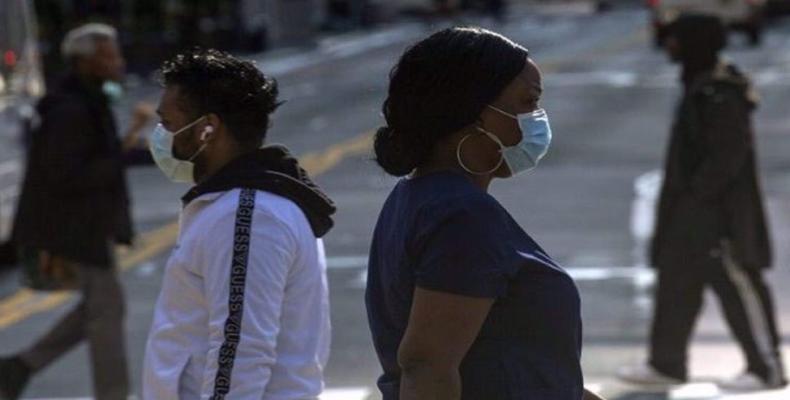St. Louis, July 14 (RHC)-- The coronavirus pandemic and racism could compound the rate of suicide among African-Americans, experts warn.
Doctors and researchers are now warning that mental health crisis linked to the coronavirus outbreak reverberates deeper among Black people, who have already seen rising youth suicide attempts and suffered disproportionately during the pandemic.
Mental health advocates want more specialized federal attention on Black suicides, including research funding. “There has been a lot of complex grief and loss related to death, related to loss of jobs and loss of income,” said Sean Joe, an expert on Black suicides at Washington University in St. Louis. “There's a lot of hurt and pain in America going on right now, and you only are getting a sense of depth in the months ahead.”
Overall, suicides have increased across the United States, with nearly 48,000 people dying by suicide in 2018, with the rate rising 35 percent since 1999, according to the Centers for Disease Control and Prevention.
And while the rates of suicides and suicide attempts for Black adults have trailed white and Native American adults, newer research indicates an alarming rise in Black young people trying to kill themselves.
According to a study published in November in the journal Pediatrics, there was a rise of 37 percent in suicide attempts between 1991 and 2017 among African-American high school students.
Meanwhile, Black families are more likely to commit suicides because they often face higher poverty rates, receive disproportionate exposure to violence and have less access to medical care.
And the current coronavirus pandemic has heightened the disparities. More Black people are dying from the virus, leaving them to grieve more in isolation given the limitations on funerals and gatherings. Racism is also exacerbating the problem.
“Dealing with racism and stereotypes and all the inequity that we have to face, it's bandaged up,” said Arielle Sheftall, an author of the Pediatrics study. “It feels like the bandage is ripped off and everybody is looking at it and staring at it, and we are bleeding profusely.”
Among the major factors, one is probably related to the fact that the study of suicide remains largely white, with little race research. Also, there has been a misconception of suicide as only a “white problem.”
“When I first started, a lot of Black people were in denial about suicide,” said Michigan psychologist Alton Kirk, who was among the first to study black suicides in the 1970s. “We had suffered enough. We survived slavery and segregation and all this other stuff. They almost saw it as being a weakness.”
Obstacles to health care for Black people persist too as there are not enough mental health professionals for them. Also, treatment has traditionally been based on white experiences, meaning some clinicians were left unprepared.


